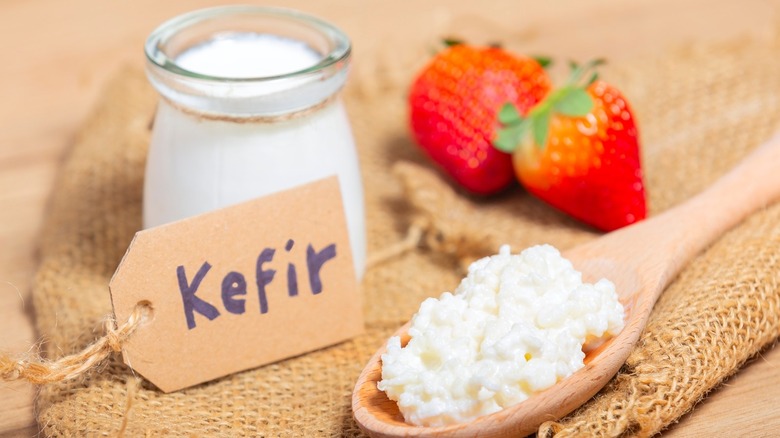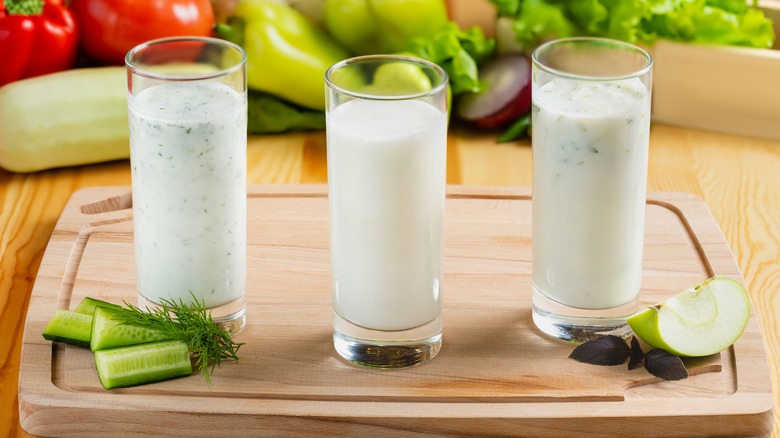Here's How Long Kefir Lasts After Opening
Kefir boasts a history of over 1,000 years, including a span of time when its recipe wasn't widely shared, but only within the last few years has it been enjoying more mainstream popularity in the United States. American consumers have finally realized that this fermented milk not only has a pleasant taste and mouthfeel — it has the consistency of a drinkable yogurt — but also that kefir is one of the most game-changing superfoods we can improve our diets with.
Kefir can be made from cow, goat, or sheep milk, and its funky, tart taste comes from being fermented with probiotic bacteria. The bacteria in kefir helps improve digestive health and can even assist in other areas like lowering blood pressure and cholesterol. However, this bacteria also means that kefir may not last quite as long as some other staples in your fridge. Once you open a container of kefir, all the bacteria working wonders in this fermented milk will also get to work mingling with new, unwanted bacteria.
Kefir does not contain preservatives — which is a good thing for its wellness benefits — but it also means that there is no line of defense against spoilage. Therefore, you really shouldn't keep kefir around for more than two days after you open it. Some brands defer a bit more loosely to their "best by" dates, but planning to enjoy your kefir within a few days of opening it guarantees that the drink will be at its best.
How to tell if kefir is spoiled and how to avoid this
Kefir has billions of live cultures in it, including 40 strains of bacteria that are good for your gut health. But that's also a lot of live bacteria action when you consider how long kefir can last in your refrigerator. Say it's been three days since you opened it — can you still enjoy that kefir at its best? Or, maybe you forgot what day you opened it.
In either case, it's good to know how to tell if your kefir is no longer fresh. Mold is your most obvious indicator, but without that, you still might notice that it's separated — as in, it's less of a thick milk and more of a water with solids floating. It may also smell — or taste, if you're brave enough to try — super sour, which is a red flag. So, is there any way to avoid getting to that possibly moldy or sour-smelling state with your kefir?
You could freeze it, but even frozen, there will still be some bacterial activity (which is desirable) and your kefir still won't keep for more than a few weeks. Do make sure you thaw it in the refrigerator and not on your counter, and at that point, you should consume it in a day or so. You could also expand your uses for kefir. Once you realize how versatile it is, you may never have to worry about it spoiling. You can whip up anything from ranch dressing with kefir to melon-kefir popsicles.

